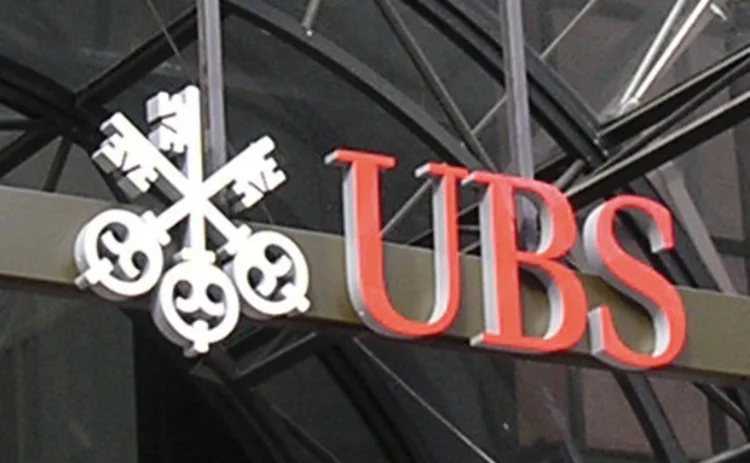UBS Fined $47.5 Million for Rogue Trading Scandal

The FSA, in announcing the fine, attributed UBS' culpability to systems and control lapses, which allowed Kweku Adoboli, 32, to disguise trades that eventually amounted to losses of around $2.3 billion at the Swiss institution. Adoboli, who worked on the Delta One desk at UBS' London offices, was found guilty of two counts of fraud and four separate counts of false accounting at Southwark Crown Court, London, last week. He was sentenced to seven years' imprisonment.
Specifically, the FSA cited that UBS' computerized risk management system was not effective in preventing unauthorized trades, the trade capture and processing system was inefficient and contained exploitable loopholes, and the bank's operations department was weak in challenging the front office. In addition, the indictment also suggests that the supervisory regime in the front office was poor, as Adoboli's desk breached risk limits without disciplinary action, and there was a failure to reconcile the profitability of the desk with its reported end-of-day positions. Profit and loss suspensions, requested by Adoboli to the tune of $1.6 billion, also went unchallenged.
"UBS' systems and controls were seriously defective," says Tracy McDermott, director of enforcement and financial crime at the FSA. "UBS failed to question the increasing revenue of the desk and failed to ensure that there was a corresponding increase in the controls in place over the desk. As a result Adoboli, a relatively junior trader, was allowed to take vast and risky market positions, and UBS failed to manage the risks around that properly. We know from past experience that failures to manage risk properly can cause firms to fail and cause systemic harm."
The fine was discounted from £42.4 million (approximately $67.9 million) due to early settlement. The bank also agreed to retain an independent consultant for review purposes, and withold varying levels of compensation from relevant employees.
The fine rounds off an unpleasant period for UBS. In addition to drastically reducing numbers in its investment bank earlier this month, the firm's CEO, Oswald Gruebel, was forced to resign in the wake of the Adoboli scandal. The FSA investigation was conducted alongside the Swiss Financial Market Supervisory Authority (Finma), which has also published its own findings.
Adoboli, who worked on the Delta One desk at UBS' London offices, was found guilty of two counts of fraud and four separate counts of false accounting at Southwark Crown Court, London, last week. He was sentenced to seven years' imprisonment.
Only users who have a paid subscription or are part of a corporate subscription are able to print or copy content.
To access these options, along with all other subscription benefits, please contact info@waterstechnology.com or view our subscription options here: https://subscriptions.waterstechnology.com/subscribe
You are currently unable to print this content. Please contact info@waterstechnology.com to find out more.
You are currently unable to copy this content. Please contact info@waterstechnology.com to find out more.
Copyright Infopro Digital Limited. All rights reserved.
As outlined in our terms and conditions, https://www.infopro-digital.com/terms-and-conditions/subscriptions/ (point 2.4), printing is limited to a single copy.
If you would like to purchase additional rights please email info@waterstechnology.com
Copyright Infopro Digital Limited. All rights reserved.
You may share this content using our article tools. As outlined in our terms and conditions, https://www.infopro-digital.com/terms-and-conditions/subscriptions/ (clause 2.4), an Authorised User may only make one copy of the materials for their own personal use. You must also comply with the restrictions in clause 2.5.
If you would like to purchase additional rights please email info@waterstechnology.com
More on Regulation
Brokers must shift HFT servers after China colocation ban
New exchange guidance drives rush for “proximity colo” in nearby datacenters.
Banks split over AI risk management
Model teams hold the reins, but some argue AI is an enterprise risk.
New EBA taxonomy could help banks track AI risk
Extra loss flags will allow banks to track transversal risks like geopolitics and AI, say experts.
Risk managers question US reach of Dora third-party list
Some EU subsidiaries included, but regulator control over cloud providers could still be limited.
Where have four years of Cusip legal drama gone?
The IMD Wrap: The antitrust case against Cusip Global Services has been a long, winding road. Reb recaps what you might have missed.
2026 will be the year agent armies awaken
Waters Wrap: Several AI experts have recently said that the next 12 months will see significant progress for agentic AI. Are capital markets firms ready for this shift from generative AI to agents?
Despite regulatory thaw in US, major questions remain globally for 2026
From crypto and tokenization to the CAT to consolidated tapes to T+1’s advancement, the regulatory space will be front and center in the New Year.
Will overnight trading in equity markets expand next year? It’s complicated.
The potential for expanded overnight trading in US equity markets sparked debate this year, whether people liked it or not.







